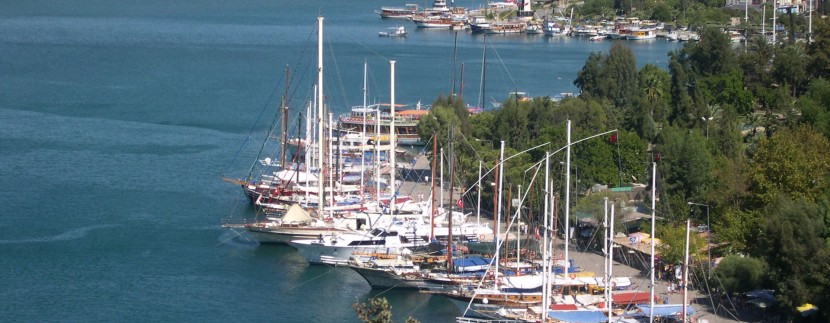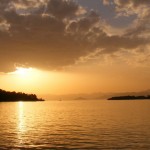Fethiye
One is at a loss for words to describe the beauty of Fethiye – if you are incurably addicted to exploring new horizons and are a lover of nature, this is the destination for you… What is it that makes these shores so delightfully indented with innumerable coves and the unbelievable beauty of nature.
To wander through the bays of Fethiye is an adventure, an exuberance, a spring of joy. While passing from one to another, the grandeur that spreads out before your eyes is enhanced by the silhouettes of tiny islands, which lead you astray.
Fethiye is located in South—West Mediterranean Turkey, connected to all other cities by three highways and reached very easily. Dalaman International Airport is as close as 50 km to the town centre. During the tourist season you can find many flights from major European cities to Fethiye besides the domestic flights throughout the year by Turkish Airlines. Additionally Antalya Airport, is a 3 hour drive to Fethiye, as another departure point.
Fethiye seaport with its sheltered natural structure is an important stop for yachtsmen. A new modern marina project will be realised soon for a large number of yachts with all facilities on the other end at the bay.
The whole region excluding Fethiye and Esen lowlands is covered with high mountains forming the south western spurs of the Taurus Range. These mountains exceeding 2000 meters extend the coastline. On a sunny winter day it is a real pleasure to view the pines and snow decorated peaks intertwined with the blue sky. Besides the refreshing woody slopes with thyme, sage, laurel and pine trees the exceptional incense forest is another peculiarity of the Fethiye region. Covering a 100-hectare area the incense forest is an ideal campsite and a picnic area. Balsam obtained from incense trees has pharmaceutical and cosmetic value and it is also used as a fumigate in mosques and churches.
Mediterranean climate with hot, dry summers and warm, wet winters prevails in the region temperatures are approximately 30°C in summers and usually not less than 12°C in winters. Seawater temperature is hardly below 17°C all year round.
In Fethiye, with its abundance and fertile land, agriculture is of major prominence. Therefore whilst in other holiday resorts it becomes quiet at end of the season, life in Fethiye flows on throughout the 12 months.
Such farming for vegetables and industrial plants as cotton, sesame, tobacco, and aniseed are the major agricultural income sources. Yearly about 250.000 tons of tomatoes are produced and exported. In bee-keeping and honey production, the potential is on a large scale. Furthermore, there is large supply of Chromium ore and Fethiye is an important export part of this mineral in Turkey.
The climatic conditions permit almost all kinds of vegetables and fruit to be cultivated. The special nature of contact between the producer and the consumer may be witnessed in the town market, is most fascinating on Tuesdays. Life at the market and the shops are located around starts early in the morning and gives opportunities to locals and tourists during the daytime. Souvenir shops are located around the Turkish bath and the old Mosque. During the peak season one can buy leather-goods, carpets, rugs, jewelry and the other souvenirs as well as Turkish fashion cloths from these shops which stay open until the late hours. When you walk around, have a break at one of “Paspatur” Cafes for a cup of Turkish coffee or apple tea, it will keep you relax and keep your mind on Fethiye as “the shining light of eco world, worth discovering” .
Fethiye is located on the Lycian and Carian border and was called Telmessos in ancient times. The city was very prominent and a centre of prophecy, pledged to Apollon. That the city life was rich and highly cultured during the Hellenistic and Roman periods is evident from the existing monuments. Today the majority of ancient ruins in Telmessos are rock-tombs, Lycian-type sarcophagi, the fortress and the Roman Theater.
The peninsula lying between Fethiye and Antalya was known as Lycia in the ancient times. Lycians were natives of Anatolia and sea-faring people as mentioned in Homer’s Iliad and Kadesh War Peace Agreement document.








